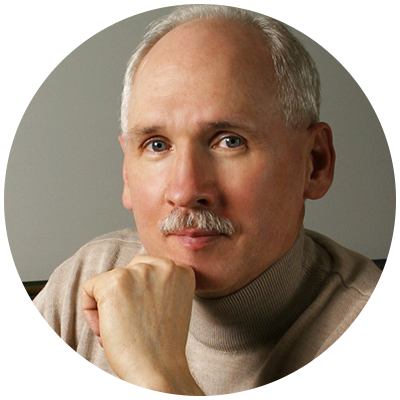
Author:
Apostle Eric vonAnderseck
Eric serves as a called and confirmed Chief Apostle in the restored government of God. He is the founder of s8w Ministries, and it is through his stewardship that God ushered in a new season of restoration for all believers who desire to walk in the fulness of Christ. View my profile.
If you want to know how important apostolic stewardship is, look at how the devil is resisting it. Ignorance is the top priority of the adversary and enemy of your soul. He wants to keep you ignorant, and so his message is that you are your own master.

There are two ways in which the devil resists the work of God to re-introduce apostolic governance to the church:
1. The devil floods the church with many false apostles. These are not called of God and carry the calling in their own name.
2. The devil sends false ministers into the church to teach believers how to be their own master. These ministers bring everybody down to the level of his ignorance to cover his own lack.
Let’s start with the first point. What did the devil do when Jesus was on earth? Satan flooded the market with many false messiahs, deliverers, and activists. He hoped that when the true Messiah would come that people would be so confused with the counterfeits that they would follow the example of the religious leaders who excused themselves from God’s plan on the grounds that they did not like the counterfeits.
And so today ministers will complain that there are many false apostles and, therefore, there cannot be any true apostles. They pretend to be the voice of sound reason by pointing out the counterfeit that is obvious to all. Let’s consider why they would do that. What would they hope to gain?
Here we start talking about the second point: It was the religious leaders who began to set the terms for God, telling Him that they would not accept a Messiah that was not groomed by their system. They wanted to be their own master.
Ministers who are against apostolic governance in the church don’t want the title because they don’t have the calling. He assesses his own qualifications and thereby selects a title he believes is fitting based on his own habits (character absent the power of God). Or he’ll throw out a few callings and ask you which one best suits what you hear him say of himself. He believes the true apostle is doing the same thing.
Ministers without a calling go to the ends of the earth, whether to Iceland, or Australia, or China, or Africa, or Pakistan as if this is a big achievement, as if frequent flier miles add merit to their labor. They are proselytizing in their own name. Jesus did not send them.
Even as the Lord said to Jeremiah, that many were ministering without the calling, and thus ministering without God’s grace. They are using themselves as the point of authority and record.
Jeremiah 14:14
“Then the Lord said unto me, The prophets prophesy lies in my name: I sent them not, neither have I commanded them, neither spake unto them: they prophesy unto you a false vision and divination, and a thing of nought, and the deceit of their heart.”
How to Avoid the Counterfeit Calling
How could these ministers solve, what is to them, an epic problem? How can the true apostle be discerned among so many counterfeits? Truth be told, they don’t want God to send any apostles and, therefore, claim they cannot discern them. This is a witness against them.
When God announced Jesus to the world He did not say that maybe Jesus could be the Son of God, or suggest that you had to pick Him out of the crowd. No. John the Baptist pointed to Jesus and said, “Behold the Lamb of God that takes away the sin of the world.” (John 1:29)
Even Jesus knew who He was and why He was sent into the world. Jesus did not submit Himself to the doubt of the religious leaders, but said plainly that He is the Messiah (Jn 4:25-26).
John 7:28
“Then cried Jesus in the temple as he taught, saying, Ye both know me, and ye know whence I am: and I am not come of myself, but he that sent me is true, whom ye know not.”
It was the religious leaders who wanted to “wait and see” and, therefore, they tested Jesus’ claims on their own scale of discernment (what they already decided they wanted to believe to remain free of Jesus’ influence). Is it any wonder that Jesus failed to pass their tests? False knowledge set a barrier to grace, and so now you weigh everything by your moral code.
Every objection to Jesus began with a statement of their own doubt, “If Jesus were the Son of God He would not do this…” Or, “If Jesus were the Son of God He would do this…”
Some even said that if Jesus was the Son of God He did not need to tell anyone, that we would all know it because you just couldn’t miss the divine appointment. But Jesus did tell them, and they did miss it, and chose the witness of man over the witness of God.
And yes, we have ministers today who follow the same example of unbelief, saying that God’s true apostles do not need to tell anyone that they are called of God. These also replace the divine with the witness of man.
Brother or Apostle
With doubt and unbelief come a host of paradoxical questions. One of those questions is, “Do we have to call you an apostle? Shouldn’t we rather just call you brother?”
The question comes from a place of abuse, and God understands that the counterfeit is abusive. False apostles use the calling as a title of authority to exercise their principle. They are not the example we follow.
Jesus addressed this same thing: All of you are brethren, but I have called you apostles. The one does not exclude the other. Jesus called them brethren to show the bond of the anointing to transition His apostles from their principle to His grace. When the grace of God rules your perspective you’re not looking for completion in your principle and you won’t favor the witness of man.
But Jesus did call His apostles by name because there has to be a distinction for oversight, which ministers want to silence so they can come forth as God’s called-out ones. They don’t need a calling to minister in their own name, so they emulate the calling through silence of the title, which is seditious against Christ. It is the spirit they are working with that troubles the church.
On the contrary, Apostle Paul, speaking by the Spirit said, “I magnify my office”. Not by the principle (to take for myself), but by grace (to build for God). When a minister places himself outside the covenant of Jesus Christ he can’t see how the true apostolic works. He sees everything in the light of his own principle. He wants to be his own master





